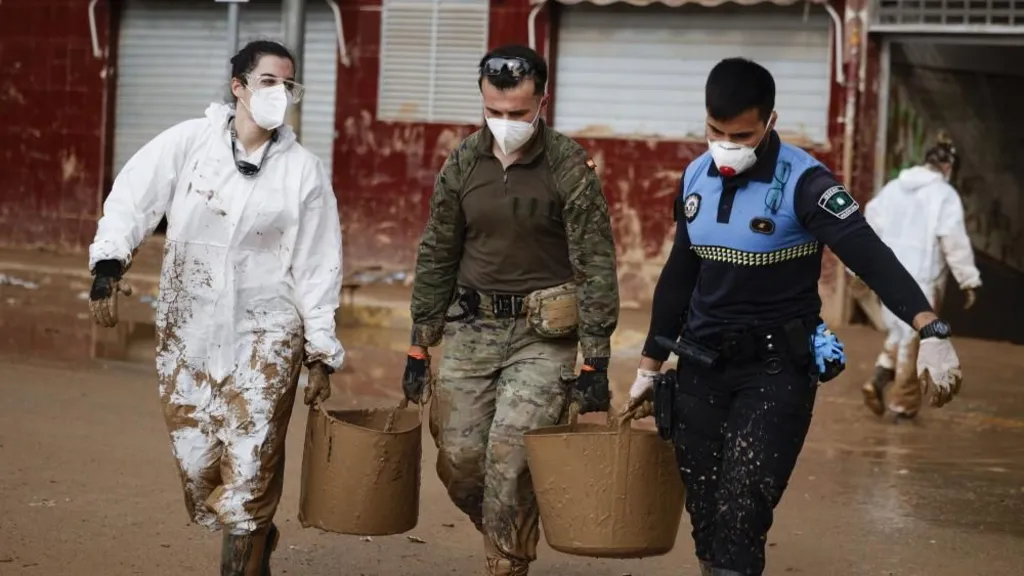
Protests have erupted in the breakaway Georgian region of Abkhazia after the local government proposed a controversial bill aimed at strengthening ties with Russia. The bill, which would have legalized Russian investment and allowed Russian nationals to buy land in the region, triggered a violent response from local residents. Demonstrators stormed the parliament and the presidential compound in the capital, Sukhumi, forcing both the president and the prime minister to flee the area.
In the wake of the protests, the government announced that it would withdraw the bill, which had sparked widespread opposition. The planned legislation was seen by many as a step towards deepening Abkhazia’s ties with Russia, a move that locals feared could undermine the region’s sovereignty and its natural environment.
Abkhazia declared independence from Georgia in 1999, but it remains unrecognized by most countries, including Georgia, which considers it to be an occupied territory. Moscow recognized Abkhazia as an independent state following the 2008 Georgian-Russian war, and since then, Russia has maintained a strong presence in the region. However, the territory’s status remains a source of tension between Russia, Georgia, and the international community.
Abkhazia is situated along the Black Sea, bordered by the Caucasus mountains, and is known for its stunning landscapes and natural beauty. The region has long been a popular holiday destination, particularly for the Soviet elite. Since its recognition by Moscow, Abkhazia has experienced an influx of Russian tourists and investors. However, many locals are concerned that increased Russian investment could lead to large-scale development projects, such as residential complexes, that would alter the region’s environment and drive up property prices, making it unaffordable for the local population.
The government’s proposal to legalize Russian land ownership in Abkhazia has raised alarm among residents, who fear that such measures would make the region even more reliant on Russia and could lead to the erosion of their autonomy. Many protesters have voiced concerns that the bill would essentially turn Abkhazia into a “Russian colony” and strip away the region’s independence.
The protests, which started peacefully, quickly escalated into violent clashes. Video footage showed protesters breaking into the parliament building, tearing down window bars, and climbing through broken windows. As the protests intensified, calls for President Aslan Bzhania’s resignation grew louder. The opposition is reportedly discussing possible replacements for the president, with some even demanding a complete overhaul of the government.

This is not the first time Abkhazia has experienced political unrest. In 2014, protests forced then-President Alexander Ankvab to flee the presidential compound after accusations of corruption and mismanagement. Ankvab eventually resigned, and the opposition leader Raul Khadzhimba took over. However, Khadzhimba himself was forced to step down in 2020 after street protests over his handling of the region’s economy and political situation. His resignation highlighted the ongoing instability and dissatisfaction with the leadership in Abkhazia.
The Russian government has reacted cautiously to the protests. The Russian Foreign Ministry issued a statement urging its citizens to avoid travel to Abkhazia, warning them to stay away from areas of unrest. Ministry spokeswoman Maria Zakharova stressed that Russia would not interfere in the situation and expressed hope that the crisis would be resolved through peaceful political dialogue. She also criticized the opposition for not resolving their differences through “civilized, mutually respectful dialogue.”
Despite Russia’s neutral stance, the protests underscore the deepening divisions within Abkhazia over its relationship with Russia. While some support closer ties with Moscow, others fear that such moves could undermine the region’s already fragile sovereignty and lead to greater Russian control. The current crisis highlights the difficult balance that Abkhazia must maintain between its desire for independence and the pressures it faces from its powerful neighbor to the north.
As of now, the situation remains tense, with protests continuing and calls for political change growing louder. The future of Abkhazia’s political landscape remains uncertain, as the region grapples with its identity, its relationship with Russia, and its aspirations for greater autonomy.








